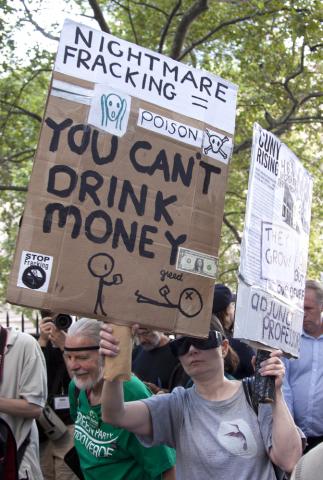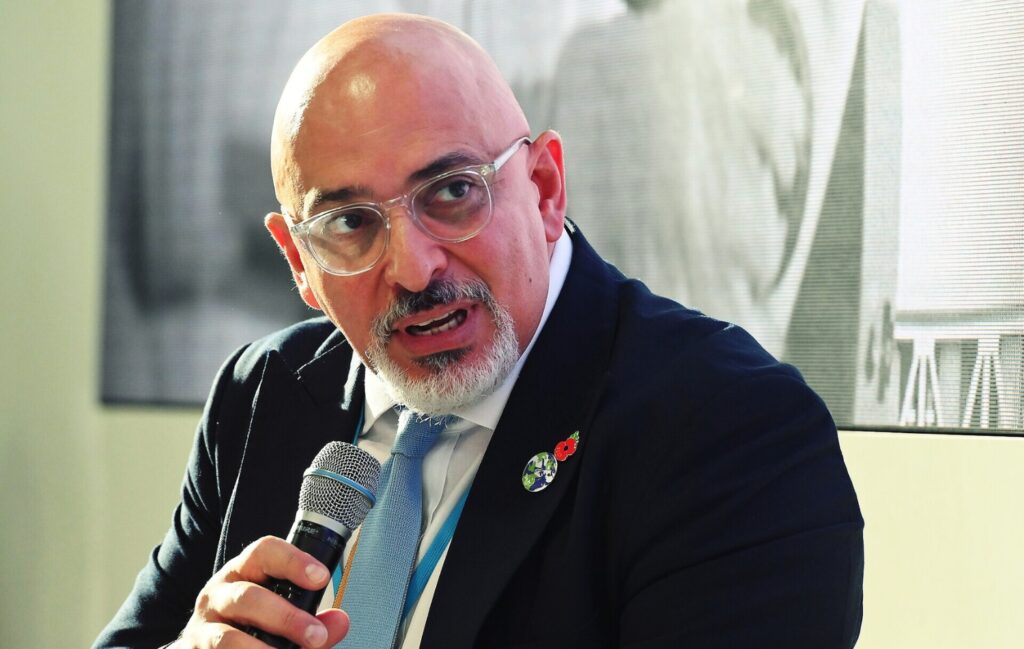Pennsylvania recently passed Act 147 – also known as the Indigenous Mineral Resources Development Act – opening up the floodgates for hydraulic fracturing (“fracking”) on the campuses of its public universities. As noted in a recent post by DeSmog, the shale gas industry hasn’t limited Version 2.0 of “frackademics” to PA‘s campuses, but is also fracking close to hundreds of K-12 schools across the country, as well.
We noted the devastating health consequences of fracking close to a middle school/high school in Le Roy, New York, where at least 18 cases of Tourette Syndrome-like outbreaks have been reported by its students. This has moved Erin Brockovich‘s law firm to investigate the case, telling USA Today, “We don’t have all the answers, but we are suspicious. The community asked us to help and this is what we do.”
Earthworks Oil and Gas Accountability‘s just-published report, “Gas Patch Roulette: How Shale Gas Development Risks Public Health in Pennsylvania,” makes the case that the decision to allow fracking on PA‘s campuses has opened up a Pandora’s Box stuffed with a looming health quagmire of epic proportions.
The health survey and environmental testing conducted by Earthworks took place between Aug. 2011 and July 2012 and the report opens by stating, “Where oil and gas development goes, health problems often follow.” The summary report explains, “Many residents have developed health symptoms that they did not have before—indicating the strong possibility that they are occurring because of gas development.”
Surveying 108 residents in 14 Pennsylvania counties, the report found “that those living closer to gas facilities reported higher rates of symptoms of impaired health.”
Earthworks reports,
[W]hen facilities were 1500-4000 feet away, 27 percent of participants reported throat irritation; this increased to 63 percent at 501-1500 feet and to 74 percent at less than 500 feet. At the farther distance, 37 percent reported sinus problems; this increased to 53 percent at the middle distance and 70 percent at the shortest distance. For severe headaches, 30 percent reported them at the farther distance, but about 60 percent at the middle and short distances.
And how about the health impacts of fracking for young people, who will be attending the K-12 schools and universities set to be situated right next to where drilling is set to occur?
“Surveyed children averaged 19 health symptoms, including some that seem atypical in the young, such as severe headaches, joint pain, and forgetfulness,” wrote Earthworks. “Among all the survey respondents, it was children living within 1500 feet of facilities who had the highest occurrence of frequent nosebleeds (56%),” also noting severe throat irritation as a reported ailment by 69-percent of people younger than the age of 16.
Schools and campuses, of course, require fresh running water to drink and use for other purposes such as showers for lockers rooms, as well as water for students to wash their hands with in the bathroom. Fresh air to breath in, as opposed to the alternative, is also always a plus.
That being the case, the water and air tests conducted by Earthworks demonstrate that students, teachers, professors, faculty and staff should be on high alert, to say the least.
“More than half of the water well samples had elevated levels of methane and some had iron, manganese, arsenic, and lead at levels higher than the Maximum Contaminant Levels (MCLs) set by the PA Department of Environmental Protection (DEP),” the report stated. “All of the air samples were taken in rural and residential areas; in several, higher levels of the BTEX chemicals (benzene, toluene, ethylbenzene, and xylene, which are known carcinogens) were detected, as compared to samples taken by the DEP in 2010.”
Pennsylvania For Sale, Open for Bidding To the Oil and Gas Industry
It’s a dim outlook in PA to put it mildly, with a recent cherry on the top: Anadarko Petroluem Corporation is in the midst of “talks” with PA‘s Department of Conservation and Natural Resources about fracking in the Rock Run area, site of a state-owned park. Republican Governor Tom Corbett recently fired the Director of its state parks system, John Norbeck, who was diametrically opposed to fracking in PA‘s parks.
“Pennsylvania…[is] forging ahead with oil and gas development without considering the public interest,” said Nadia Steinzor, Marcellus Shale Organizer for Earthworks, in a press release. “That needs to change. And they can start by refusing to permit new drilling until regulators can assure the public that they’ve taken all necessary to steps to prevent risks to their health.”
It’s a nice thought in theory.
But the current reality in Pennsylvania under the Corbett Administration is far darker, with whatever’s left of the state’s public assets currently being auctioned off for fracking – in what author and activist Naomi Klein described as “shock doctrine” fashion – to the oil and gas industry’s highest bidders.
Photo Credit: Glynnis Jones | Shutterstock
Subscribe to our newsletter
Stay up to date with DeSmog news and alerts






